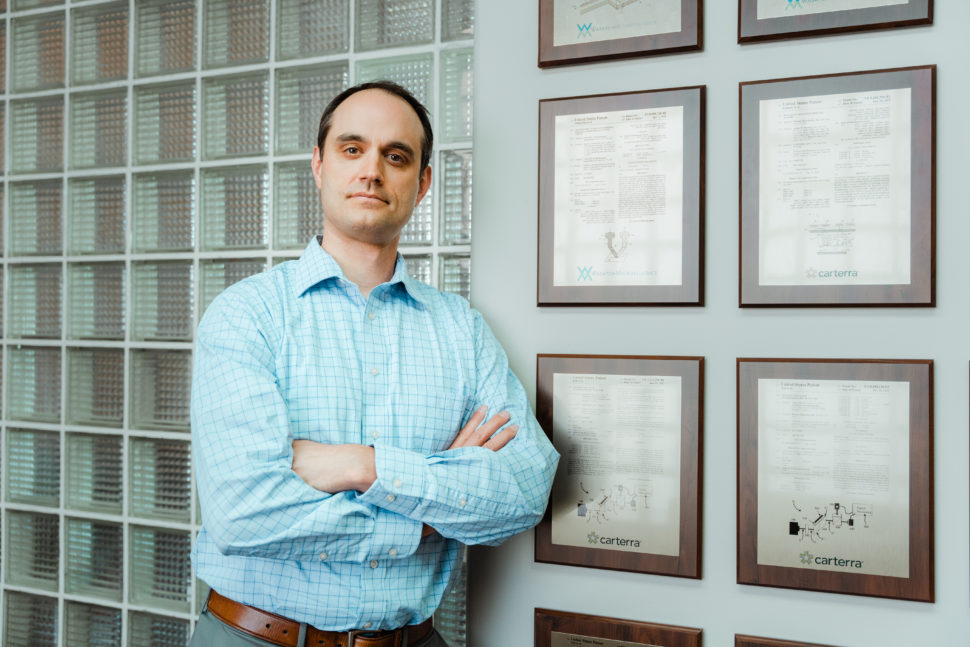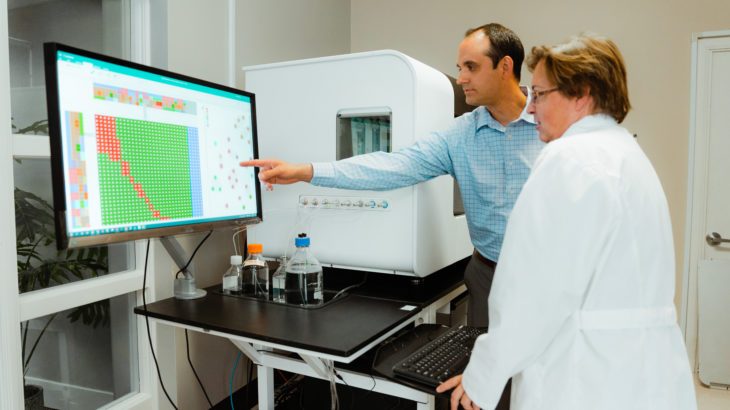Most students working for the Lassonde New Venture Development Center gain valuable experience by helping an existing company get started. Josh Eckman, on the other hand, started a company while he was in the center.
Eckman went to the University of Utah for his undergrad in engineering. Then, Eckman served a religious mission in South Korea and came back with a desire to travel the world, so he changed to a double major in Asian studies and business administration. At one point, Eckman ran into a friend who told him to look into the Lassonde New Venture Development Center.
As an undergraduate student, Eckman worked on a project involving aircraft wiring and attempting to find parts of the wiring that are degrading. He also worked on technologies for avalanche monitoring and commercial construction.
“These were examples where the tech was broadly applicable. We were tasked with determining feasible market applications and building business cases,” Eckman said.
While working on these projects, Eckman realized that he missed the STEM component that was missing in business administration and Asian studies. He decided to get an engineering degree. He could either get another undergraduate degree in four years, or he could get a graduate degree in two years. Eckman decided to go for efficiency. In his senior year of undergrad, Eckman took high-level engineering classes to prove that he was ready. He applied to several top engineering graduate schools and was accepted to all of them.
Eckman had to choose between the top schools, but University of Utah professor Bruce Gale made that choice easier for him. The professor offered Eckman a research assistant position. In addition, the professor gave Eckman a portfolio of patents and asked him to identify key opportunities.
“He told me, ‘You can go somewhere out of state or stay here and start a company,’” Eckman said.
Eckman identified an opportunity in a patent for the technology that would become Carterra (originally incorporated as Wasatch Microfluidics). The patent was for a biosensor that uses microfluidic technology to analyze samples much faster than general biosensors.
“We basically take complex bio lab processes and miniaturize them,” Eckman said.
Gale, director of the Center of Excellence for Biomedical Microfluidics, was Eckman’s advisor. Eckman and his team wrote a business plan and submitted it to the Utah Entrepreneur Challenge, which they went on to win.
“I really appreciate Pierre Lassonde and his contributions,” Eckman said, referring to the founder of the Lassonde Entrepreneur Institute. “He changed my life.”
They went on to raise commercialization funding from government grants and angel investors. By 2014, Pfizer partnered with Carterra with a million-dollar investment. Two years later, Carterra raised its first major institutional investment from Telegraph Hill Partners, a venture capital firm. To date, Carterra has raised approximately $50M in funding. Carterra is on four continents and its platform is used by 17 of the 20 largest pharmaceutical companies. Its technology played a key role in 2020 for the development of a COVID-19 treatment by Eli Lilly.
The process of screening potential life-saving drugs usually takes months, but with Carterra’s technology, it can take days.
“It can cost one billion dollars to develop a new drug, so every hour saved is worth a lot of money,” Eckman said.
Learn more about Carterra at carterra-bio.com.

Josh Eckman




Josh is amazing, still one of the smartest entrepreneurs I know. As a member of that unnamed team, former Lassonde associate, and co-founder of Carterra it is a privilege to work with Josh.